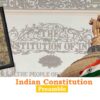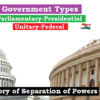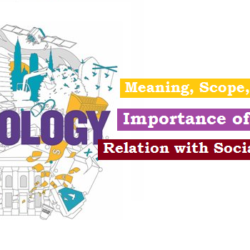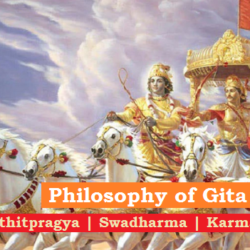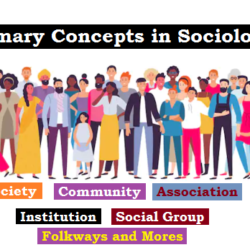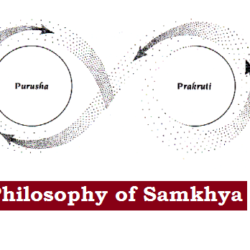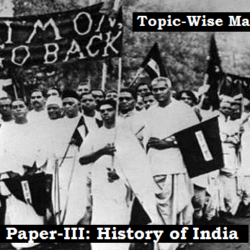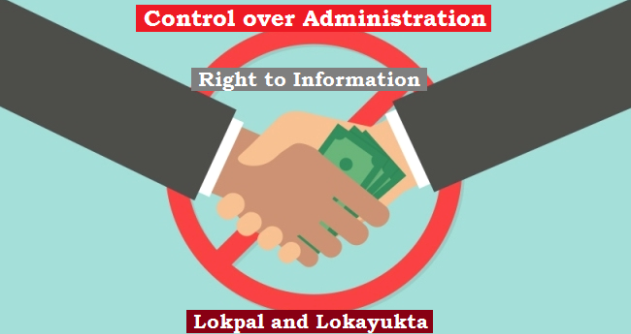
Lokpal and Lokayukta
The 1st Administrative Reform Commission (1965) recommended the setting up of Lokpal and Lokayukta for redressal of citizen’s grievances. After many failed attempts by the Parliament, The Lokpal and Lokayukta Act 2013 was enacted which provides for the appointment of a Lokpal at the Centre and Lokayuktas in States, its structure, jurisdiction and powers.
They are not constitutional bodies. They are anti-corruption authorities or ombudsman with jurisdiction over all Govt employees, public representatives including the Prime Minister.
The institution of Ombudsman was first created in Sweden in 1809. ‘Ombud’ is a Swedish term and refers to a person who acts as the representative or spokesman of another person.
Appointment of Lokpal:
- It consists of a chairman and maximum of 8 members- 50% from judicial background and 50% from disadvantaged sections (ST, SC, OBC, Minority and women)
- The term of office for Lokpal Chairman and Members is 5 years or till the age of 70 years.
- The members are appointed by the president on the recommendation of a Selection Committee. The selection committee has following members:
- Prime Minister
- Lok Sabha Speaker
- Leader of Opposition
- Chief Justice of India or a Supreme Court Judge nominated by him
- Eminent jurist nominated by the President
Powers of Lokpal:
- Lokpal’s jurisdiction covers all categories of public servants, NGOs (that receives more than 10 Lakh per annum from abroad).
- It has power of superintendence and direction over any central investigating agency including CBI.
- An independent inquiry and prosecution wing with the powers of a Civil Court.
- Lokpal has powers of confiscation of assets, proceeds, receipts and benefits arisen or procured by means of corruption in special circumstances.
Functions of Lokpal:
- Any complaint can be made to the Lokpal for an offence under the Prevention of Corruption Act.
- The Lokpal may order a preliminary inquiry by its Inquiry Wing or refer it any investigation agency like CBI.
- With respect to Central Government Servants, it may refer cases to the Central Vigilance Commission.
- The trials will be held in special courts, which must complete them within one year. Bill lays down clear timelines for preliminary enquiry and investigation and trial.
- It has provisions for the protection of public servants who act as whistle blowers.
| The Lokpal and Lokayuktas (Amendment) Act, 2016 |
| 1. The Bill amends the Lokpal and Lokayuktas Act, 2013 in relation to the declaration of assets and liabilities by public servants. 2. The Lokpal Act requires a public servant to declare his assets and liabilities, and that of his spouse and dependent children. 3. It enables the leader of the single largest opposition party in the Lok Sabha to be a member of the selection committee in the absence of a recognized Leader of Opposition. |
Lokayukta
- The Lokpal and Lokayukta Act, 2013 provided for the establishment of Lokpal for the Union and Lokayukta for States. It is equivalent of Lokpal in States.
- Once appointed, Lokayukta can not be dismissed nor transferred by the government, and can only be removed by passing an impeachment motion by the state assembly.
- The Lokayukta, along with the Income Tax Department and the Anti Corruption Bureau, mainly helps people publicize corruption among the Politicians and Government Officials.
- Maharashtra was the first state to introduce the institution of Lokayukta in 1971.
Need of Lokpal:
- Corruption is the root cause of poor service delivery and inefficiency of Govt machinery.
- Most of the anti-corruption agencies are advisory bodies without any effective powers and their advice is rarely followed.
- There is also the problem of internal transparency and accountability as they don’t have supervision by any separate higher agency. Moreover, there is political influence in the appointment of their members.
- In this context, an independent institution of Lokpal has been a landmark move to combat corruption in India.
Right to Information
Right to Information Act 2005 mandates timely response to citizen requests for government information. It empowers the citizens for quick search of information on the details of first Appellate Authorities, PIOs etc. amongst others, besides access to RTI related information/ disclosures published on the web by various Public Authorities under the government of India as well as the State Governments. The nodal office for the implementation of is Department of Personnel and Training (DoPT).
Objective of RTI:
- Empower the citizens to keep necessary vigil on the instruments of governance
- Promote transparency and accountability in the working of the Government by containing corruption, and make our democracy work for the people in real sense.
- Making the citizens informed about the activities of the Government.
Salient Features of RTI:
- Eligibility:
- All citizens posses the right to information and they can make request for any information related with the following bodies:
- Constitutional bodies at center and state (Legislature, Executive, Judiciary), bodies/NGOs owned/financed by government, privatized public utility companies.
- Intelligence and Security Agencies are excluded from the purview; however, the exclusion is not absolute.
- 3 Tier System– Public Information Officer (PIO), First Appellate Authority, State Information Commission (SIC).
- Central Information Commission (CIC) does not have jurisdiction over a State Information Commission.
- Any appeal against the SIC order can only filed in the High Court or Supreme Court.
- Time Period:
- Public Information Officer has to provide the information sought expeditiously within 30 days from the date of receipt by public authority.
- The information sought has to be provided within 48 hours if it is related with someone’s life or liberty.
- Appeal: 30 days since limit of supply of information is expired for first appeal and 90 days since limit of supply of information is expired for second appeal.
- Proactive Dissemination:
- RTI act also asks for computerization and proactively publish information.
- Central Information Commissioner:
- Central Information Commission includes 1 Chief Information Commissioner (CIC) and not more than 10 Information Commissioners (IC) who are appointed by the President of India on the basis of recommendation of select committee.
- The Select Committee consists of the Prime Minister, Leader of Opposition in the Lok Sabha and a Union Cabinet Minister as nominated by the Prime Minister.
- They hold office for 5 yrs or up to 65 yrs of age.
- Commissioner and Information Commissioners shall be persons of eminence in public life with wide knowledge and experience in law, science and technology, social service, management, journalism, mass media or administration and governance.
- State Information Commissioner:
- State Information Commission includes 1 Chief Information Commissioner (CIC) and not more than 10 Information Commissioners (IC) who are appointed by the Government on the basis of recommendation of select committee.
- The Select Committee consists of the Chief Minister, Leader of Opposition in the Assembly and a Cabinet Minister as nominated by the Chief Minister.
- They hold office for 5 yrs or up to 65 yrs of age.
- Commissioner and Information Commissioners shall be persons of eminence in public life with wide knowledge and experience in law, science and technology, social service, management, journalism, mass media or administration and governance.
Achievements:
- A tool for information gathering as well as activism
- Enhanced accountability of public authority, it is in mind while using a pen
- Helping for policy advocacy (undertrials numbers, etc) to better delivery of services
- From mercy or discretionary activities to entitlement based
Implementation Challenges:
The RTI Act 2005 has the following provisions among others:
- Sec 6 (2): applicant not required to give reason for requesting the information
- Sec 4: Suo motu information at regular intervals so that public resort to use it minimum
- Even exempted information can be provided if larger public interest is shown
However, there are certain provisions which are used for circumventing the Act:
- Sec 7(9): information has to be given in the form asked unless it would disproportionately divert the resources of the public authority
- Information can’t be given unnecessarily if it hinders the regular functioning of institutions (SC view)
- Several walls of secrecy (Official Secrets Act 1923, etc)
Other challenges are:
- Case filing for vested interests instead of genuine concerns or information requirement
- No proper record keeping and management, therefore information distribution is time taking
- Lack of training and motivation of PIOs
- Long Pendency in most Information Commissions signals casual approach towards RTI
- Lack of awareness and publicity to public especially in the rural areas
- Many a times being used to blackmail the authority
- Ensuring the safety of activists
- Judiciary and political parties don’t come under RTI which lead to distrust among the citizens
- There is an allegation of political patronage in selection of Information Commissioners

 Home
Home Syllabus
Syllabus Contact Us
Contact Us